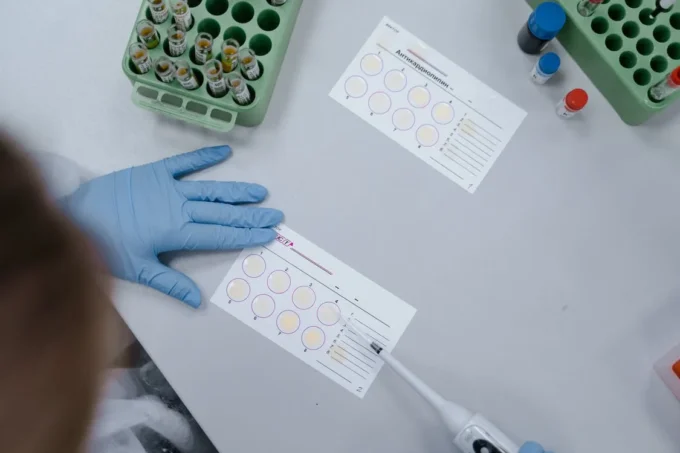The biotech industry is constantly evolving, making it a difficult sector to keep up with. As an investor, you need to be aware of the latest developments in order to make informed decisions about where to invest your money. We will explore the current state of the industry and what things investors should know before putting their money into this sector. We will also touch on some of the challenges that companies face and how they are trying to overcome them.
What is Biotech?

Biotech is a large umbrella term that is used to describe a range of different activities. In general, biotech can be applied to any technological application that uses living organisms or their derivatives to make or modify products or processes for specific use.
The industry is made up of companies that research, develop, and commercialize products based on genetic engineering and biotechnology. It includes pharmaceutical companies, medical device manufacturers, agricultural biotechnology firms, and industrial biotechnology firms.
The pharmaceutical sector is the largest sub-sector of the biotech industry and focuses on the development of drugs. Drug development is a long and expensive process that typically takes 10-15 years from start to finish. The process involves the identification of a target molecule, the development of a lead compound, preclinical testing in animals, clinical trials in humans, regulatory approval, and commercialization.
Medical devices are another important sub-sector of this industry. Medical devices are regulated differently than drugs and usually do not require clinical trials prior to approval. However, they must go through an extensive approval process with the FDA before they can be marketed to consumers.
Agricultural biotechnology is another sub-sector of the biotech industry that focuses on developing genetically modified crops. Genetically modified crops are created by inserting genes from other organisms into the DNA of plants. These crops are designed to have specific characteristics such as resistance to herbicides or pests.
Industrial biotechnology is the final sub-sector of this industry and focuses on using living organisms to create products or processes for industrial use. This can include everything from using enzymes to create biofuels to using bacteria to clean up environmental contamination.
Biotech is a rapidly growing industry with immense potential

The industry is growing rapidly and has immense potential. In 2016, the global biotech market was valued at $775 billion and is expected to reach $1.6 trillion by 2025, according to Grand View Research. The industry is driven by advances in technology that are enabling scientists to develop new therapies and treatments for a wide range of diseases.
Biotech companies are developing innovative solutions to address some of the world’s most pressing health challenges, such as cancer, cellular rejuvenation, Alzheimer’s disease, and diabetes. In addition, the industry is also working on developing new crops and food products that are better for the environment and human health.
What are the Different Types of Biotech Investments?

There are four main types of biotech investment: small-cap, big-cap, venture capital, and government funding.
Small-cap companies are typically young and have not yet turned a profit. They tend to be more volatile than big-cap companies, but also offer higher growth potential.
Big-cap companies are typically large, established firms with a proven track record. They tend to be less risky than small-cap companies but also offer lower growth potential.
Venture capital firms invest in early-stage companies with high growth potential. These investments are often riskier than those in big-cap or small-cap companies but can offer greater rewards if the company is successful.
Government funding is typically provided to support research and development projects with the goal of commercialization. These projects may be riskier than those funded by venture capitalists but can offer significant rewards if successful.
If you are looking to expand your biotech portfolio check out Altos Labs stocks.
Pros and Cons of Investing in Biotech

The sector is typically characterized by high growth rates, which can translate into strong returns for investors. Additionally, these kinds of firms tend to be at the forefront of developing new and innovative treatments for a variety of diseases, meaning that they can provide investors with exposure to cutting-edge technology.
However, there are also some risks to consider before investing. The sector is notoriously volatile, and share prices can fluctuate significantly in response to clinical trial results or other news. Additionally, many firms are relatively small and may lack the financial resources to commercialize their products successfully.
What to Look for When Investing in Biotech

It is important to do your research and understand the risks involved. Biotech can be a volatile industry, and there are often unforeseen bumps in the road that can impact even the most promising companies.
Investors should have a clear investment thesis when investing in biotech. What are you looking for in a company? What kind of products or therapies are you interested in? By having a clear investment thesis, you will be better able to target specific companies that align with your goals.
Finally, don’t forget to diversify your portfolio. While biotech can be a great opportunity for growth, it shouldn’t be the only sector that you’re invested in. By diversifying, you’ll be able to weather any storms that come along and still come out ahead in the long run.
How to Diversify Your Biotech Portfolio

Consider different types of companies. There are large pharmaceutical companies, small biotech firms, and everything in between. Each has its own strengths and weaknesses, so it’s important to consider a mix of companies when diversifying your portfolio.
Don’t put all your eggs in one basket. It’s important to spread your investments across a few different companies and sectors to reduce risk.
Think about both established and emerging companies. Established companies tend to be more stable, but they may not offer the same growth potential as emerging companies. Emerging companies may be riskier, but they also have the potential for higher returns.
Keep an eye on the overall market trends. It is a volatile sector, so it’s important to pay attention to broader market trends when making investment decisions.
Work with a financial advisor who specializes in biotech investing. This can help you make informed investment decisions and ensure that you have a well-diversified portfolio.
Conclusion
The biotech industry is constantly evolving, making it difficult to predict which companies will be successful in the long run. However, by understanding the basics of the industry and keeping up with current trends, investors can make informed decisions about which biotech companies to invest in. With a little research, anyone can become a savvy investor in this exciting industry. If you do your homework and invest wisely, you could see some amazing returns. Just remember to always tread carefully and never take more risks than you’re comfortable with.









